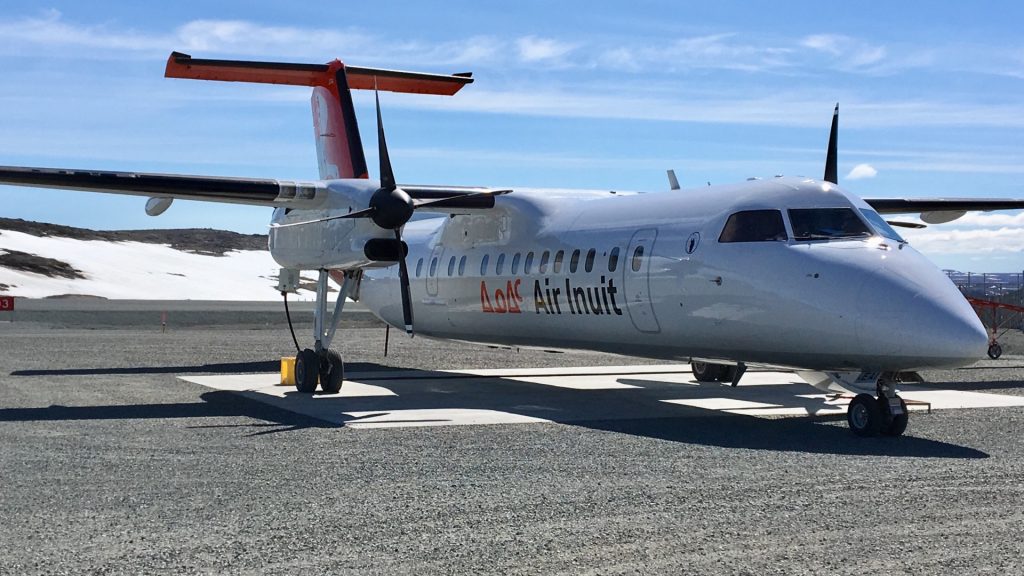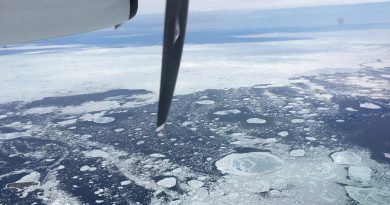Quebec plan to cap regional airfares fall short, Indigenous leaders say

Many routes in northern Cree and Inuit communities not eligible
Officials in some northern Quebec Indigenous communities say a provincial plan to cap some regional round-trip airfares at $500, needs to include the most expensive routes in the province — and needs to include much more detail before it can be put in place.
Quebec’s transport minister, François Bonnardel, announced the Quebec Regional Air Transport Plan last month, promising an investment of $261 million dollars over the next five years.
The aim is to bring down the cost of traveling to some outlying regions, stimulate tourism and economic growth and get Quebecers flying again, said Bonnardel on April 19, adding it would be in place by June 1.
But the plan as announced, doesn’t include some of the most expensive routes in the province, to the northern reaches of Cree territory and into the Inuit communities in Nunavik.
Matthew A. Happyjack, president of Air Creebec, which serves the Cree communities of northern Quebec and Ontario, said the government has yet to provide key details needed to actually put it in place.
We didn’t receive any contract … the nitty gritty is not done yet.– Matthew Happyjack
“We didn’t receive any contract whatsoever. The nitty gritty is not done yet, because the companies will have to do a lot of work,” said Happyjack.
Lots of questions remain
“What’s the limit? How many people? How many times can people use it?” Happyjack asked.
He added that members of his team have been part of a working group with the government on regional air travel for the last few years, but they were surprised by Bonnardel’s announcement.
And while he welcomes the idea, he is also not sure it will bring back business to pre-pandemic levels.
He said Air Creebec has only recovered one fifth of its pre-pandemic business and he doesn’t think business travel will ever come back to what it once was.
“I hope they find the magic formula,” said Happyjack. “Because the need is there. The communities and towns need it.”
Noticeably absent from the eligible routes announced by the minister, was anything north of Fermont, a mining town located just north of the 52nd parallel, about 1,300 kilometres northeast of Montreal.
Other eligible routes include the Gaspé peninsula and Quebec’s Lower North Shore, as well as some of the routes Air Creebec flies in southern hubs like Val d’Or and Chibougamau, in the Abitibi region.
Happyjack says the plan needs to be expanded to include all regions — and routes — across the province.
“They have to be fair,” said Happyjack.
Air Inuit routes not included
Travellers in Nunavik have some of the highest airfares in the province.
A round-trip ticket in June on Air Inuit between Montreal and Ivujivik costs anywhere from $2,100 to $2,500 dollars, according to Air Inuit’s website. Ivujivik is the most northern community in Quebec, located close to 2,000 kilometres north of Montreal.
Hilda Snowball is the chairperson of the Kativik Regional Government.
She says she wants to know why Nunavik routes are not included in the Quebec Regional Air Transport Plan and she has asked for a meeting with the provincial government over the matter.
“The government of Quebec is supposed to look after the whole province of Quebec,” Snowball told Alec Gordon, host of Tuttavik, in Inuktitut.
“[To] leave Nunavik behind on this is not right.”
CBC made repeated requests for information to the transport minister’s office with no response.
CBC has also reached out to Air Inuit and Makivik Corp.
-With files from Alec Gordon and Jordan Konek
Related stories from around the North:
United States: Airline shutdown creates new challenges for rural Alaska, The Associated Press



